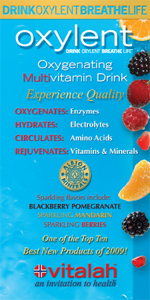18.5 - 24.9 = Normal
25 - 29.9 = Overweight
> 30 = Obesity



If time permits, I would like to sign up for a proper course. It was good exercise :)
- Beatty Sec
- Beatty Sec
- Beatty Sec
- ICA
- CHIJ St Nicholas Girls School
There were so many moves of self-defense. Coaches are very nice. This rocks!
- Northland Primary
- CHIJ St Nicholas Girls School
Coach make us feel “Taichi"
- Hong Wen School
I want to learn more advanced Taichi.
- Hong Wen School
- Princess Elizabeth Primary
The coach is very good in Wushu, I would like to continue learning.
- Princess Elizabeth Primary
- Princess Elizabeth Primary
Read More >>
(WORD COUNT: 286)
There are certain reasons as to why physically active individuals need to take vitamin supplements. Taking for example, in certain types of athletic activity such as gymnastics and ballet, athletes may undertake prolonged semi-starvation or starvation diets. Although this is not a recommended procedure, some athletes may still do it in order to obtain or maintain an optimal body weight for competition. In such situations, when the energy intake may be well below 1,200-1,600 calories per day, many surveys have shown that athletes may not be receiving enough vitamins.
Research suggests that vitamin depletion, mainly the water soluble vitamins, can happen quickly in humans on low calorie diets and that these vitamins should be replenished daily. Athletes may also need vitamin supplementation if they are subsisting on poor diets. Moreover, some vitamin requirements are increased in pregnant women and the elderly, so those who exercise need to consume vitamin rich diets (Williams, H. Melvin, 2007)
In general, athletes should obtain all the vitamins and minerals from their diet. Since athletes use up more energy as compared to sedentary people, they probably will eat more too, and so any extra requirement for vitamins or minerals should be met by their increased food intake (providing the diet is balanced).
However, there have also been some studies which have shown that many athletes don't have sufficient vitamin and mineral intakes. This may be due to the fact that they restrict calorie intake for weight control. The other reasons for insufficient vitamin and mineral intake include irregular training routines which makes meal planning difficult and following a dietary that is not providing a balanced diet (Vitamins and minerals and the athlete Website, 2008).
Vitamin supplements, exercise, energy intake.
Durstibe, J.L., (2006) Action Plan For High Cholersterol Human Kinetic
Halliwell, B. (1996) Oxidative stress, nutrition and health: Experimental strategies for optimization of nutritional antioxidant intake in humans. Free Radical Research 25 57-74
Howley, E.T. and B.D. Franks, (2003) Health Fitness Instructor's Handbook (4th Ed) Human Kinetics
Lemon, P.W. (1998) Effects of exercise on dietary protein requirements. International Journal of Sports Nutrition
Lukaski, H. (2001) Magnesium, zinc and chromium nutrition and athletic performance. Canadian Journal of Applied Physiology 26 13-22
M.Forgac (1979) Carbohydrate Loading: A Review. Journal of the American Dietetic Association 75 42-45
Marieb, N.E., (2006) Essential of Human Anatomy & Physiology (8th Ed) Pearson Benkamin Cummings San Francisco
Marieb, N.E. and H. Katja, (2007) Human Anatomy & Physiology (7th Ed) Pearson Benkamin Cummings
McArdle, W.D. et al., (2007) Exercise Physiology, Energy, Nutrition & Human Performance (6th Ed) Lippincott Williams & Wilkins Baltimore
Newhouse and Finstad (2000) The effects of magnesium supplementation on exercise performance. Clinical Journal of Sport Medicine 10 195-200
Rico-Sanz, J., et al. (1999) Muscle glycogen degradation during simulation of a fatiguing soccer match in elite soccer players examined noninvasively by 13C-MRS. Medicine & science in Sports & Exercise 31 1587-1593
Stafford-Brown, J. et al., (2003) BTEC National In Sport and Exercise Science Hodder Education London
Vitamins and minerals and the athlete Website (2008) http://www.bupa.co.uk (12th May 2008)
Williams, H.M., (2007) Nutrition for Health, Fitness, & Sport (8th Ed) McGraw Hill

 Multivitamin Drink
Multivitamin Drink
 More info >>
More info >>
 More info >>
More info >>
 Sports Massage Therapy
Sports Massage Therapy